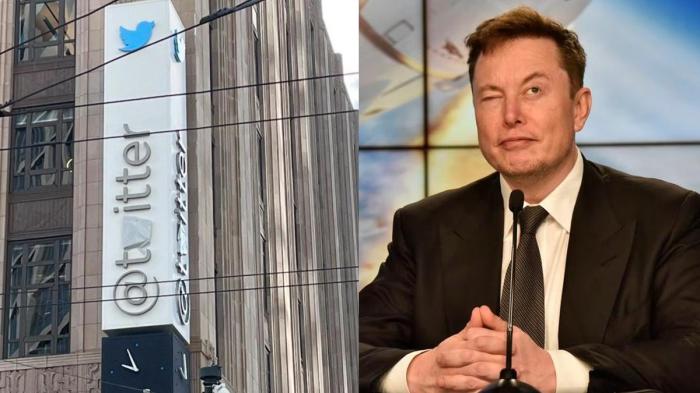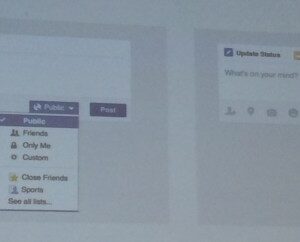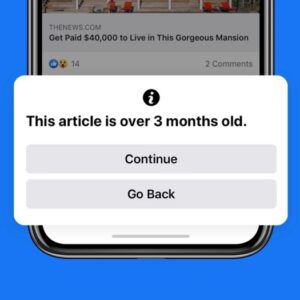Elon musk deletes tesla and spacex facebook pages twitter challenge – Elon Musk deletes Tesla and SpaceX Facebook pages: Twitter challenge. The move sent shockwaves through the tech world, leaving many wondering about the eccentric billionaire’s motivations. Was it a calculated PR stunt, a rejection of Facebook’s policies, or something else entirely? This bold decision throws a spotlight on Musk’s complex relationship with social media, his reliance on Twitter, and the evolving dynamics between corporations and the platforms they use to connect with their audience. The implications for Tesla and SpaceX’s brand image, and the broader landscape of social media marketing, are significant and worth exploring.
Musk’s history with social media is as unpredictable as his ventures. His Twitter feed is legendary for its unfiltered opinions, market-moving pronouncements, and even the occasional meme. But his relationship with Facebook has been far less visible. The deletion of the Tesla and SpaceX pages, therefore, raises questions about his overall social media strategy and the potential ramifications for both companies. We delve into the possible “Twitter challenge” aspect, exploring the potential for this action to influence social media regulations and inspire similar moves from other high-profile figures.
Elon Musk’s Social Media Strategy: Elon Musk Deletes Tesla And Spacex Facebook Pages Twitter Challenge

Source: tosshub.com
Elon Musk’s Facebook purge – ditching Tesla and SpaceX pages in a Twitter-fueled revolt – got me thinking about other tech titans defying expectations. Remember the buzz around a foldable iPhone, as discussed in this older article about the foldable iphone launch 2020 rumor ? Musk’s anti-Facebook stance, a bold move mirroring the innovative spirit (or perhaps the risk-taking) behind that rumored foldable phone, shows us that shaking things up is sometimes the only way to stay ahead.
Elon Musk’s relationship with social media is, to put it mildly, complex. He’s used platforms like Twitter and Facebook to directly engage with customers, announce groundbreaking news, and even, on occasion, to stir up controversy. His approach, however, has shifted dramatically over time, culminating in the recent deletion of Tesla and SpaceX’s Facebook pages, a move that raises questions about his evolving social media strategy and its impact on these brands.
Reasons for Deleting Tesla and SpaceX Facebook Pages
The precise reasons behind Musk’s decision remain somewhat opaque, though several plausible explanations exist. One prominent theory centers around Facebook’s data privacy practices and Musk’s well-documented concerns about data security and user privacy. Another possibility is a strategic shift towards prioritizing Twitter, a platform where Musk enjoys significantly more direct control and engagement with his audience. Finally, the move could simply reflect a broader dissatisfaction with Facebook’s platform and algorithm, a sentiment shared by many users and businesses. The lack of a formal statement from Musk or his companies adds to the intrigue.
Comparison of Musk’s Engagement on Twitter and Facebook
Musk’s Twitter presence is legendary. He uses the platform prolifically, often posting late into the night, sharing updates on SpaceX launches, Tesla developments, and expressing his opinions on a wide range of topics, from cryptocurrency to artificial intelligence. This contrasts sharply with his previous use of Facebook, which was far less frequent and less personally driven. On Twitter, he directly interacts with followers, responds to criticism, and even occasionally trolls his detractors – a level of engagement rarely seen on Facebook. The difference highlights a preference for the immediacy and direct communication offered by Twitter’s platform.
Implications for Tesla and SpaceX’s Brand Image
The deletion of the Facebook pages carries implications for the brand image of both Tesla and SpaceX. While some may see it as a bold statement aligning with Musk’s maverick persona, others might perceive it as a lack of accessibility or a disregard for a significant segment of their potential customer base. The decision could potentially alienate users who primarily rely on Facebook for information and engagement with brands. However, it could also reinforce Musk’s image as an innovator who is not afraid to challenge established norms. The long-term impact remains to be seen, but it certainly presents a case study in the complexities of social media strategy for high-profile brands.
Hypothetical Social Media Strategy for Tesla and SpaceX
Given the events, a revised social media strategy for Tesla and SpaceX should focus on maximizing engagement on platforms where Musk feels comfortable and in control. This means doubling down on Twitter, potentially exploring other platforms like X (formerly Twitter) that offer similar levels of direct interaction. However, a complete abandonment of Facebook might be premature. A carefully curated presence on other platforms, emphasizing high-quality visual content and community building, could mitigate the risks associated with solely relying on Twitter. A multi-platform strategy, carefully balancing direct engagement with broader reach, would likely be more effective than a solely Twitter-centric approach. This would involve assigning dedicated teams to manage content across different platforms, ensuring consistency in messaging while adapting the content to suit the specific audience and platform characteristics.
The Twitter Challenge Aspect
Elon Musk’s deletion of Tesla and SpaceX’s Facebook pages, coupled with the headline mentioning a “Twitter challenge,” suggests a deliberate shift in his social media strategy, prioritizing Twitter while implicitly criticizing Facebook’s platform and policies. This isn’t simply a matter of platform preference; it represents a high-profile challenge to the dominance of established social media giants and their perceived shortcomings.
The “Twitter challenge” can be interpreted in several ways. It could be a direct challenge to Facebook’s business model and influence, a test of Twitter’s capabilities as a primary communication channel for major corporations, or even a symbolic gesture reflecting Musk’s broader philosophical stance on free speech and online censorship. The action also carries implications for how he navigates the complex landscape of public relations and brand management in the digital age.
Possible Interpretations of the Twitter Challenge
The deletion of the Facebook pages signifies more than just a preference for Twitter. It represents a calculated move, potentially aiming to increase engagement on Twitter, consolidate his brand’s online presence, or even to exert pressure on Facebook to adopt policies more aligned with his views on free speech and content moderation. The lack of official statements from Musk himself leaves room for speculation, but the action itself speaks volumes. His significant following on Twitter allows him to bypass traditional media channels and communicate directly with his audience, potentially increasing his reach and control over the narrative. This approach also highlights the growing power of individuals to influence public opinion and shape the conversation on social media.
Influence on the Social Media Regulation Debate
Musk’s actions contribute to the ongoing debate surrounding social media regulation. His implicit criticism of Facebook’s practices, coupled with his strong advocacy for free speech on Twitter, raises questions about the balance between freedom of expression and the need to moderate harmful content. The event underscores the power of individual actors to challenge existing social media norms and highlight the need for transparent and accountable platform governance. The challenge posed by Musk’s move might encourage discussions about the need for greater regulatory oversight, or alternatively, strengthen the argument for a more decentralized and less controlled internet.
Examples of High-Profile Individuals Challenging Social Media Platforms
Many high-profile individuals have engaged in similar challenges against social media platforms. These actions often stem from disagreements over content moderation policies, censorship, or perceived bias. The outcomes vary greatly, from temporary suspensions to permanent bans, highlighting the complex power dynamics at play.
Comparison of Similar Instances
| Platform | Individual | Action | Outcome |
|---|---|---|---|
| Donald Trump | Permanent ban following January 6th Capitol riot | Permanent exclusion from the platform | |
| Facebook & Instagram | Alex Jones | Removal of accounts due to violation of community standards | Permanent ban from Facebook and Instagram |
| YouTube | David Icke | Multiple videos demonetized and/or removed for spreading misinformation | Content restrictions and loss of revenue |
| Kanye West (Ye) | Account suspended multiple times for violating hate speech policies | Repeated suspensions and eventual account reinstatement |
Impact on Brand Perception
Elon Musk’s decision to delete Tesla and SpaceX’s Facebook pages, ostensibly as part of a broader Twitter-centric strategy, carries significant implications for the brands’ public perception. This move, while seemingly bold and aligned with Musk’s rebellious image, presents both opportunities and risks that require careful consideration. The absence of a Facebook presence, a platform boasting billions of users, could drastically alter how these companies are perceived and engaged with by their target audiences.
The deletion of Facebook pages could affect public perception of Tesla and SpaceX in several ways. For a segment of the population, it might reinforce the image of these companies as innovative and disruptive, aligning with Musk’s persona as a tech maverick challenging established norms. Conversely, others might view it as aloof, inaccessible, or even arrogant, suggesting a disregard for a substantial portion of potential customers and stakeholders. This is especially true given Facebook’s enduring popularity, particularly among older demographics.
Potential Positive and Negative Consequences
The decision to abandon Facebook could lead to several positive outcomes. For example, it could streamline marketing efforts, focusing resources on platforms deemed more effective by the companies. It might also attract a younger, more tech-savvy audience already heavily invested in Twitter and other platforms favored by Musk. However, potential negative consequences are equally significant. The move could alienate a large portion of the existing customer base and potential buyers who primarily rely on Facebook for information and engagement. This could translate to lost sales and decreased brand loyalty. Negative media coverage focusing on the exclusionary nature of this decision could further damage the brands’ image. For instance, imagine the negative press if a critical safety recall announcement only reached a fraction of the audience due to the lack of a Facebook presence. The resulting PR crisis could severely impact Tesla and SpaceX’s stock prices and overall public standing.
Impact on Customer Engagement
The lack of a Facebook presence directly impacts customer engagement. Facebook provides a crucial channel for direct communication, customer service, and community building. Removing this avenue limits opportunities for Tesla and SpaceX to address customer concerns, respond to feedback, and foster brand loyalty. The absence of a dedicated Facebook page makes it harder for customers to easily find relevant information, participate in discussions, or share their experiences. This lack of interaction can lead to customer frustration and a perception of poor customer service, ultimately impacting brand reputation. Consider the established customer service channels many companies utilize on Facebook; their absence creates a vacuum that can be challenging to fill entirely through other platforms.
Mitigating Negative Impacts, Elon musk deletes tesla and spacex facebook pages twitter challenge
To mitigate potential negative impacts, Tesla and SpaceX should implement a multi-pronged strategy. This includes leveraging their existing strong presence on Twitter and other platforms like Instagram and X (formerly Twitter) to disseminate crucial information and engage with customers. Furthermore, they should invest in robust customer support channels outside of social media, such as improved email and phone support. Proactive public relations efforts, highlighting the reasons behind the decision (perhaps focusing on data showing higher engagement on other platforms), could help manage negative perceptions. Investing in targeted advertising on platforms frequented by the demographics potentially alienated by the Facebook departure could also be beneficial. Finally, carefully monitoring public sentiment and adapting the strategy based on feedback is crucial. The absence of Facebook should not translate into a lack of engagement with their customer base.
Consistent Social Media Presence and Brand Consistency
A consistent social media presence across multiple platforms is vital for maintaining brand consistency. A unified brand voice and messaging across all channels ensure a cohesive brand image. In Musk’s case, the abrupt abandonment of Facebook could contradict the carefully cultivated image of innovation and disruption. A more strategic approach might involve a phased transition, allowing time for customers to adjust to the change and minimizing potential disruptions. Consistent messaging and brand identity across platforms create a recognizable and trustworthy brand image. The absence of a consistent strategy across social media platforms can lead to fragmented messaging and a diluted brand identity. This can confuse customers and damage brand trust.
The Role of Twitter in Musk’s Communication

Source: techeblog.com
Elon Musk’s relationship with Twitter is more than just a social media presence; it’s a defining characteristic of his public persona and a cornerstone of his communication strategy. His tweets, often impulsive and unfiltered, have become news events themselves, shaping market trends and influencing public opinion on a global scale. This reliance on Twitter, however, presents both significant advantages and considerable risks.
Twitter serves as Musk’s primary channel for directly addressing his vast audience, bypassing traditional media gatekeepers. This direct-to-consumer approach allows for rapid dissemination of information, immediate responses to criticism, and a unique level of engagement with stakeholders. His use of the platform showcases a distinct communication style, contrasting sharply with the more controlled and curated approach typically seen on platforms like Facebook.
Musk’s Communication Styles: Twitter vs. Facebook (Hypothetical)
On Twitter, Musk’s communication is characterized by brevity, informality, and a willingness to engage in often controversial debates. He uses memes, sarcasm, and even outright provocation to convey messages. A hypothetical Facebook presence, however, would likely necessitate a more polished, corporate-style communication. Posts would probably be more structured, with a focus on carefully crafted messaging and professional imagery. The informal, often combative style of his tweets would likely be toned down considerably to maintain a more consistent brand image. The contrast highlights the different audiences and communication goals suited to each platform.
Advantages and Disadvantages of Twitter Reliance
The primary advantage of Musk’s heavy Twitter usage is its unparalleled reach and immediacy. He can directly address millions of followers instantly, creating a powerful sense of connection and transparency (or at least the appearance of it). However, this direct access also presents substantial disadvantages. The platform’s character limits and the potential for misinterpretations can lead to significant communication blunders, as evidenced by several instances where his tweets have caused market volatility or sparked public outrage. The lack of editorial oversight and the inherent informality of Twitter also leave Musk vulnerable to manipulation and the spread of misinformation.
Potential Risks of Sole Platform Reliance: A Scenario
Imagine a scenario where a major crisis hits one of Musk’s companies – a product recall, a major accident, or a significant regulatory challenge. If his communication is solely reliant on Twitter, and that platform experiences a major outage, a significant security breach, or is even temporarily suspended, his ability to communicate critical information to stakeholders, employees, and the public would be severely compromised. This lack of redundancy in his communication strategy represents a considerable risk to his reputation and the success of his enterprises. The resulting communication vacuum could lead to widespread panic, negative media coverage, and significant financial losses.
Alternative Communication Strategies
To mitigate the risks associated with over-reliance on a single platform, a diversified communication strategy is crucial. This could involve establishing a robust presence on multiple platforms – including LinkedIn for professional updates, a company blog for in-depth information, and perhaps even a dedicated press office for official announcements. This multi-platform approach ensures that even if one channel fails, other avenues remain available for critical communication. Further, incorporating more traditional media outlets – press releases, interviews, and carefully planned public appearances – could provide a more balanced and controlled communication flow, mitigating the risks inherent in Twitter’s less structured environment.
Future Implications for Social Media Usage

Source: hindustantimes.com
Elon Musk’s dramatic purge of Tesla and SpaceX’s Facebook and Twitter pages sent shockwaves through the corporate world. It’s a bold move that forces us to reconsider the role of social media in a company’s overall strategy, especially for giants like Tesla and SpaceX. This isn’t just about a personal preference; it’s a potential paradigm shift in how businesses interact with their online audiences.
The immediate aftermath of Musk’s decision will likely trigger a wave of reassessments within boardrooms globally. Companies will scrutinize their own social media strategies, questioning their reliance on platforms like Facebook and Twitter, and weighing the risks against the rewards. We might see a surge in diversification, with businesses spreading their online presence across multiple platforms to avoid over-reliance on any single entity. This will lead to a more complex, yet arguably more resilient, social media landscape.
Potential Trends in Social Media Usage for Large Corporations
Following Musk’s actions, we can expect a rise in corporate strategies emphasizing platform diversification and increased control over their online narrative. Companies might invest more in owned channels like their websites and email newsletters, building stronger direct relationships with customers and reducing their dependence on third-party platforms. We might also see a greater emphasis on community building through less algorithm-dependent spaces, potentially mimicking the rise of decentralized platforms like Mastodon, which experienced a significant surge in users after Musk’s Twitter takeover. This trend towards decentralization offers companies a way to regain control over their communication and engage with their audience without the constraints of centralized platforms. For example, a major clothing brand could launch its own forum or app, creating a direct connection with consumers and sidestepping the complexities of managing a brand presence on various social media channels.
Examples of Corporate Reactions to Musk’s Decision
Some companies might follow Musk’s lead, albeit cautiously, scaling back their social media presence on platforms they deem too volatile or prone to censorship. Others might double down on their engagement, viewing the situation as an opportunity to gain a competitive advantage by showcasing a more consistent and curated brand image. Consider a scenario where a rival electric vehicle manufacturer, seeing Tesla’s reduced Facebook presence, might invest heavily in targeted Facebook ads to capture market share. Alternatively, a tech company known for its strong privacy focus could use Musk’s actions to reinforce its commitment to data security and user control, showcasing its own platform as a safer and more transparent alternative. The responses will be varied, reflecting diverse corporate cultures and risk appetites.
Long-Term Effects on the Business-Social Media Platform Relationship
Musk’s move highlights the inherent power imbalance between businesses and social media platforms. The long-term effect could be a shift towards greater negotiation power for businesses. Companies might demand more transparency from platforms regarding algorithms, data usage, and content moderation policies. We might even see the emergence of collaborative efforts, with businesses working together to create more equitable and transparent relationships with social media giants. This could lead to the development of industry-wide standards and regulations, demanding greater accountability from the platforms. The ultimate outcome will depend on the evolving regulatory landscape and the collective action of businesses seeking to regain control over their online narratives.
Decision-Making Process for Companies Regarding Social Media Usage
A flowchart illustrating this process would begin with a central question: “Should we maintain our current social media strategy?” This would branch into “Yes” and “No” pathways. The “Yes” pathway would lead to a review of performance metrics and a risk assessment of the current platforms. The “No” pathway would lead to a cost-benefit analysis of alternative strategies, including diversification, increased investment in owned channels, or a complete social media overhaul. Each branch would further bifurcate, leading to decisions regarding resource allocation, team restructuring, and ongoing monitoring and evaluation. The final outcome would be a revised social media strategy, reflecting the company’s evolving needs and risk tolerance.
Impact on the Future of Social Media Marketing Strategies
Musk’s actions will likely accelerate the shift away from purely organic social media marketing towards more sophisticated and diversified strategies. This means a greater emphasis on paid advertising, influencer marketing, and the development of owned channels. Companies will need to become more agile and adaptable, constantly reassessing their social media presence and adjusting their strategies based on evolving platform dynamics and user behavior. The focus will shift from simply being “present” on social media to strategically leveraging these platforms to achieve specific business goals. For example, a food company might move away from relying solely on Instagram for brand building and instead integrate TikTok marketing campaigns to engage a younger demographic.
Closing Summary
Elon Musk’s decision to delete Tesla and SpaceX’s Facebook pages, framed as a “Twitter challenge,” highlights the evolving power dynamics between tech giants and social media platforms. It underscores the risks and rewards of relying heavily on a single platform for communication, forcing a reconsideration of corporate social media strategies. While the move may have short-term impacts on brand perception, the long-term consequences will depend on how Tesla and SpaceX adapt to a potentially shifting social media landscape. This event serves as a case study in the ever-changing relationship between businesses and the digital world, a relationship that will continue to evolve in unexpected and fascinating ways.


